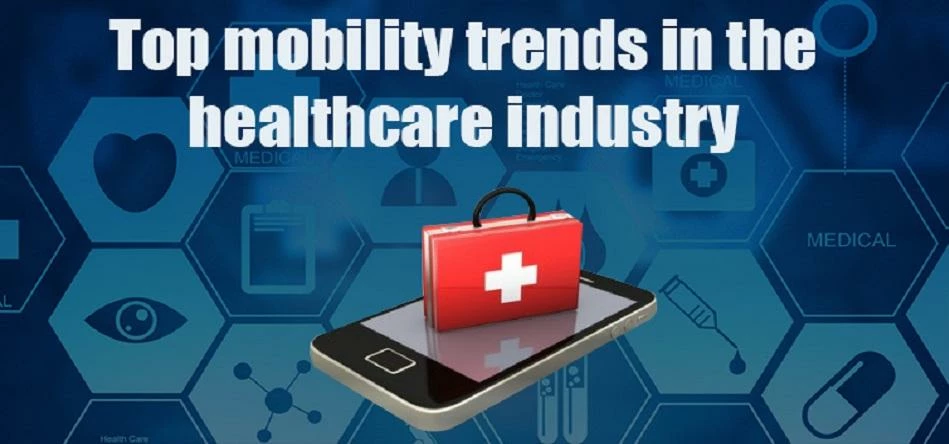
Partner Article
Introducing the top trends in healthcare mobility
In the last few years the use of mobile phones has brought transforming change in quite a lot of industries. It was with retail, travel and the media industry that started using smartphones to improve customer engagement and now the healthcare industry is following their footsteps. Despite not having access to smartphones, healthcare professionals use mobile phones to transform several aspects of clinical practice and to deliver healthcare more efficiently.
How mobile phones entered in healthcare set ups?
It’s imperative to have access to the quick information in healthcare sets ups as the value of time is directly associated with lives and not money. So, in that case the ability of mobile phones to transmit crucial information anytime anywhere leads to enhance adoption in clinical settings – from hospitals to classrooms. You might know that 93% of physicians use mobile phones in their daily activities while the rest use it to offer patient care. Almost 66% doctors own a tablet while 54% use it in their practices. Such statistics hint towards the fact that mobility helps in improving the quality of healthcare services.
Top mobility trends in the healthcare industry
1. Restructured Administrative Processes
Despite the presence of a number of hospitals the quality of care is just not apt and the lack of time is responsible for the same. Like from the initial stage itself most processes are executed manually due to which a lot of productive time is wasted. Due to this patients suffer a lot majorly at understaffed hospitals. To avoid such scenario, health care set ups are investing inbuilding mobile apps as that way it manages time and information in more efficient manner.
Patients can keep a tab on doctor information and fix appointments with doctors directly through their mobile devices. This helps you do away with burdensome process of calling the hospitals, waiting for a receptionist to answer and several other things. These apps can be useful to doctors in tracking appointments, meetings, call schedules and other clinical obligations.
2. Digital Health Records
No doubt that documenting relevant health records of patients and their relevant medical data is highly necessary in a hospital environment. Often these records are rubbed out and additions are made to existing records constantly. Now you need to have ample storage space for such huge information and a right team to file and sort it. At the same time retrieval of this information is again necessary in clinical settings.
So in that case use mobile apps to file and retrieve relevant health records and then the doctors can have an easy access to patient information like medical history, vitals, lab reports and discharge summary over a secure server.
3. Mobile Communications and Consulting
The functioning of healthcare setting is hugely dispersed as it comprises of separate functioning of several departments, like inpatient wards, OPD services, emergency departments, pharmacies, operation theaters and labs. Now it is not easy to bring together these departments and deliver timely patient care. The specially developed clinical communication mobile apps play a huge role in breaking down communication barriers and help patients, doctors and other hospital staff to communicate and collaborate with people in different locations.
4. Collaborative Medical training and Education
Education in healthcare industry need to adapt to the new methods of learning as there the education is just not limited to textbooks and medical manuals. Through educational mobile apps you can make notes and perform calculations, and these apps are integrated with various medical resources available online helping students and trainees have access to significant medical literature.
5. Automated Inventory Management Systems
Different products in healthcare industry come with an expiry date thus it is vital to manage and schedule product. Through mobile solutions implemented in hospitals and pharmaceutical companies you can manage better inventory allowing sales people with real-time access to inventory data and orders.
Conclusion
There are several aspects that need to be taken care in Healthcare industry to enhance the health care quality. Through mobile devices you can pick up several variables in a person’s environment and serve as sensors, aggregators and displays offering actionable intelligence to make better clinical decisions.
This was posted in Bdaily's Members' News section by Octal Info Solution Limited .








 £100,000 milestone drives forward STEM work
£100,000 milestone drives forward STEM work
 Restoring confidence for the economic road ahead
Restoring confidence for the economic road ahead
 Ready to scale? Buy-and-build offers opportunity
Ready to scale? Buy-and-build offers opportunity
 When will our regional economy grow?
When will our regional economy grow?
 Creating a thriving North East construction sector
Creating a thriving North East construction sector
 Why investors are still backing the North East
Why investors are still backing the North East
 Time to stop risking Britain’s family businesses
Time to stop risking Britain’s family businesses
 A year of growth, collaboration and impact
A year of growth, collaboration and impact
 2000 reasons for North East business positivity
2000 reasons for North East business positivity
 How to make your growth strategy deliver in 2026
How to make your growth strategy deliver in 2026
 Powering a new wave of regional screen indies
Powering a new wave of regional screen indies
 A new year and a new outlook for property scene
A new year and a new outlook for property scene